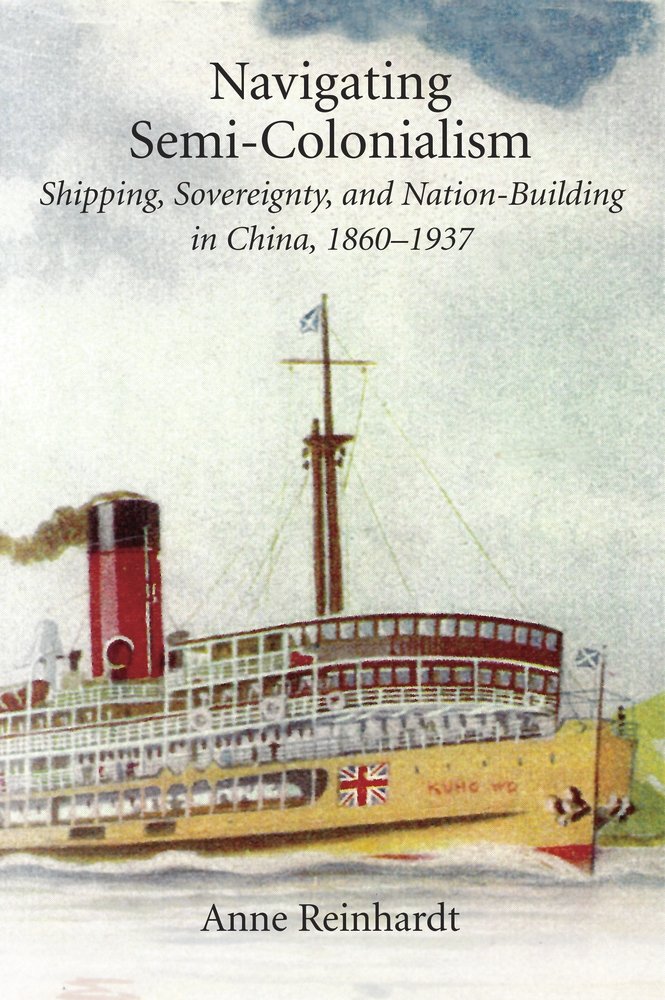Navigating Semi-Colonialism | Anne Reinhardt

Detalii Navigating Semi-Colonialism | Anne Reinhardt
carturesti.ro
306.7 Lei
Carte straina
Harvard University, Asia Center
Navigating Semi-Colonialism | Anne Reinhardt - Disponibil la carturesti.ro
Pe YEO găsești Navigating Semi-Colonialism | Anne Reinhardt de la Harvard University, Asia Center, în categoria Carte straina.
Indiferent de nevoile tale, Navigating Semi-Colonialism | Anne Reinhardt din categoria Carte straina îți poate aduce un echilibru perfect între calitate și preț, cu avantaje practice și moderne.
Caracteristici și Avantaje ale produsului Navigating Semi-Colonialism | Anne Reinhardt
- Departament: gaming-carti-birotica
- Ideal pentru pasionații de jocuri, birotică și distracție online.
Preț: 306.7 Lei
Caracteristicile produsului Navigating Semi-Colonialism | Anne Reinhardt
- Brand: Harvard University, Asia Center
- Categoria: Carte straina
- Magazin: carturesti.ro
- Ultima actualizare: 17-11-2020 23:15:50
Comandă Navigating Semi-Colonialism | Anne Reinhardt Online, Simplu și Rapid
Prin intermediul platformei YEO, poți comanda Navigating Semi-Colonialism | Anne Reinhardt de la carturesti.ro rapid și în siguranță. Bucură-te de o experiență de cumpărături online optimizată și descoperă cele mai bune oferte actualizate constant.
Descriere magazin:
China\'s status in the world of expanding European empires of the nineteenth and early twentieth centuries has long been under dispute. Its unequal relations with multiple powers, secured through a system of treaties rather than through colonization, has invited debate over the degree and significance of outside control and local sovereignty. Navigating Semi-Colonialism examines steam navigation-introduced by foreign powers to Chinese waters in the mid-nineteenth century-as a constitutive element of the treaty system to illuminate both conceptual and concrete aspects of this regime, arguing for the specificity of China\'s experience, its continuities with colonialism in other contexts, and its links to global processes. Focusing on the shipping network of open treaty ports, the book examines the expansion of steam navigation, the growth of shipping enterprise, and the social climate of the steamship in the late nineteenth century as arenas of contestation and collaboration that highlight the significance of partial Chinese sovereignty and the limitations imposed upon it. It further analyzes the transformation of this regime under the nationalism of the Republican period, and pursues a comparison of shipping regimes in China and India to provide a novel perspective on China under the treaty system.

Produse asemănătoare
Produse marca Harvard University, Asia Center

Localizing Learning. The Literati Enterprise in Wuzhou, 1100-1600, Hardback/Peter K. Bol
![]() elefant.ro
elefant.ro
Actualizat in 28/10/2025
439.99 Lei

Financial Liberalization and Economic Development in Korea, 1980-2020, Hardback/Hail Park
![]() elefant.ro
elefant.ro
Actualizat in 28/10/2025
317.99 Lei

Power for a Price. The Purchase of Official Appointments in Qing China, Hardback/Lawrence Zhang
![]() elefant.ro
elefant.ro
Actualizat in 28/10/2025
382.99 Lei

Tokyo War Crimes Trial. The Pursuit of Justice in the Wake of World War II, Paperback/Yuma Totani
![]() elefant.ro
elefant.ro
Actualizat in 28/10/2025
158.99 Lei

